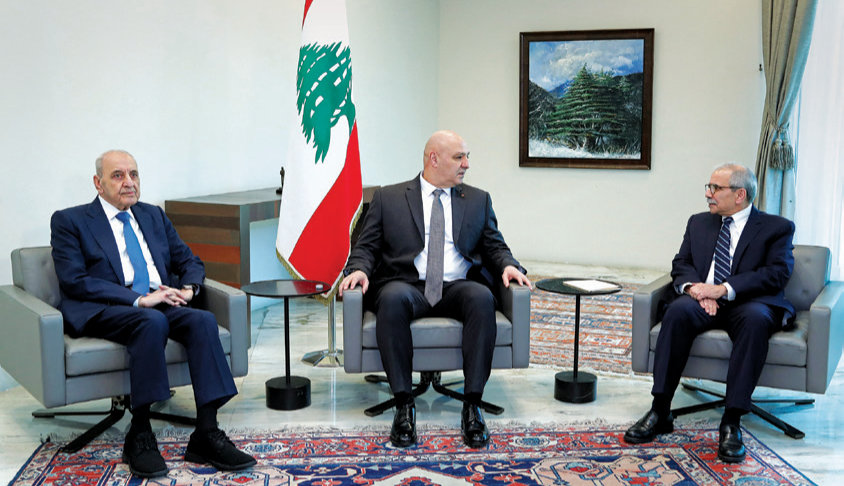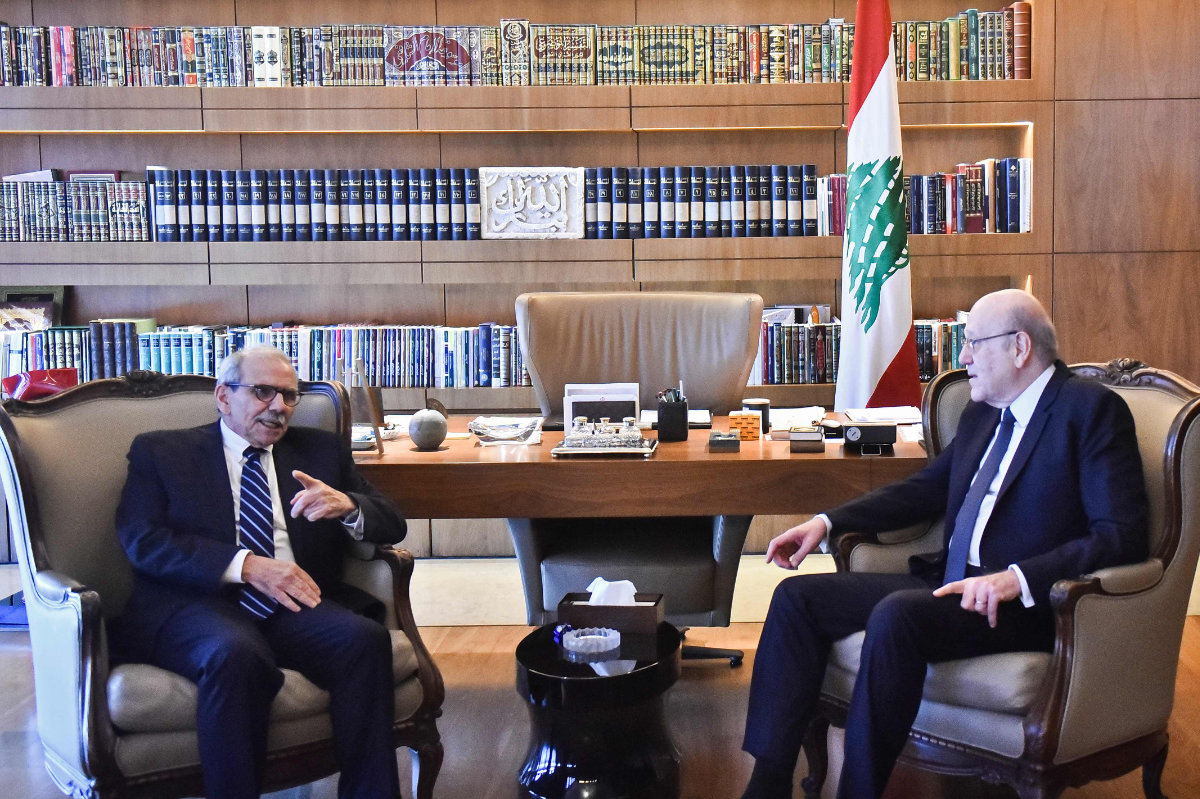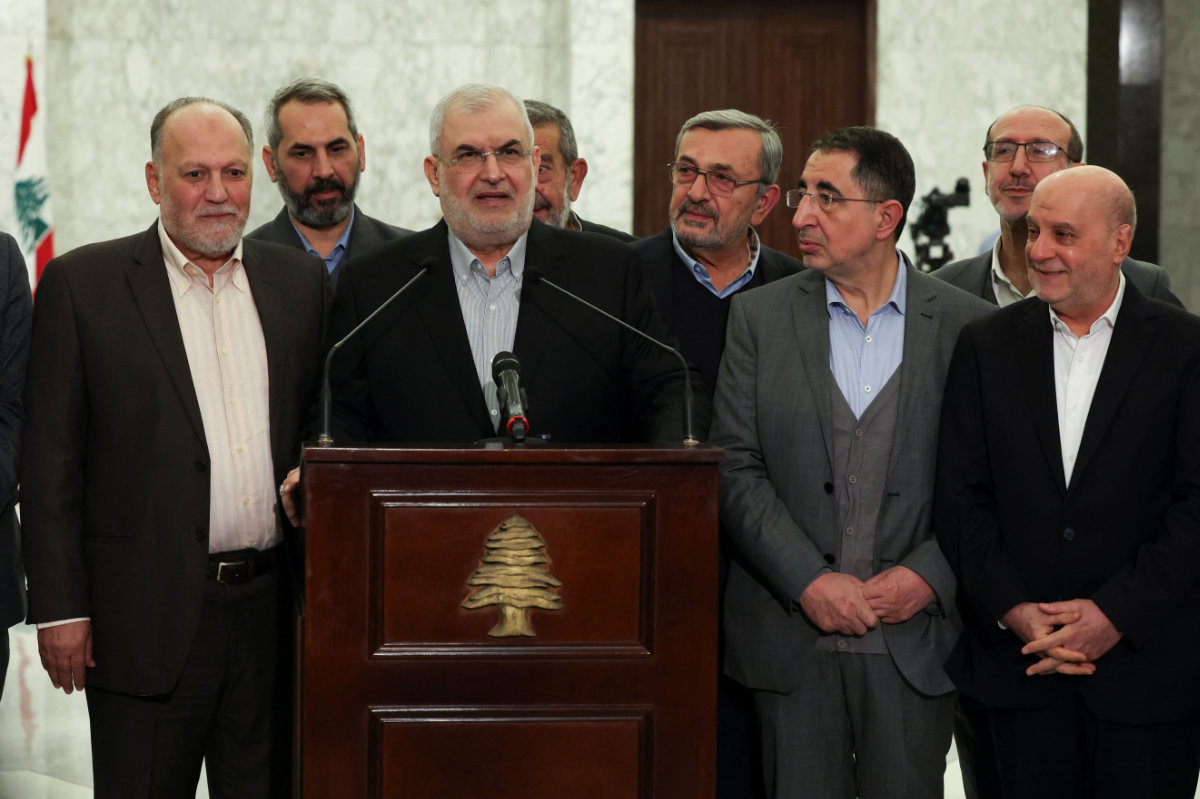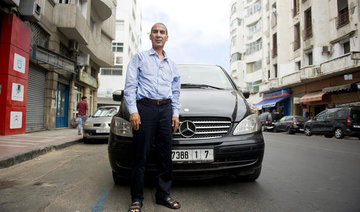ISTANBUL: An Istanbul court on Monday began hearing a case against Uber brought by the city’s taxi drivers seeking to have the ride-hailing app blocked, as tensions mount in Turkey over its popularity.
The suit brought by the main association representing taxi drivers for Istanbul is the latest legal headache for the fast-growing but controversial Uber which has already seen its license withdrawn in London.
Dozens of taxi drivers held a noisy protest outside the main courthouse in Istanbul where the case was heard, brandishing placards including “we don’t want the global thief.”
Lawyers for the Taxi Drivers Association told the court they wanted the app blocked in the city. The court said it would wait for a report from the association and adjourned the next hearing until June 4.
Tensions over the growing popularity of Uber have spread in Turkey, in some cases resulting in violence.
On Saturday, shots were fired at an Uber vehicle in Istanbul’s Kucukcekmece district but the driver was unhurt.
Uber drivers have also received false calls from people pretending to be passengers who then beat them up, according to a report in the Turkish newspaper Haberturk last week.
Eyup Aksu, the head of the main taxi drivers guild in Istanbul, slammed Uber as “pirates” and warned that the taxi drivers were ready to act if decisions went against them.
“If the judiciary takes a contrary decision then our patience is sapped. Taxi drivers are ready to do anything for their bread,” he said outside the courthouse.
Taxi drivers gathered at the court threw bottles of water at vehicles they suspected of being driven by Uber drivers, the Dogan news agency said.
The yellow taxis of Istanbul form the transport backbone of the city, with some 18,000 vehicles helping move commuters and tourists in a megapolis where public transport can be patchy.
Some complain Istanbul taxi drivers can be abrasive and prone to ripping off tourists. But most drivers, who usually rent their car from the license holder, are doing their best to earn a living honestly in a tough city.
Taxi drivers around the world have complained that Uber has made inroads into their business but the company’s biggest trouble has been in London where Uber lost its license over criminal record checks for drivers.
It is still allowed to operate in the British capital pending an appeal. New chief executive Dara Khosrowshahi is seeking to clean up the company’s reputation worldwide after replacing ousted co-founder Travis Kalanick last year.
Angry Istanbul taxi drivers seek to block Uber
Angry Istanbul taxi drivers seek to block Uber

Joy mixed with fear for Israelis awaiting Gaza hostage release

Israeli President Isaac Herzog said the deal was the “right move” to bring back hostages
TEL AVIV: Israelis expressed both joy and apprehension at the announcement of a Gaza ceasefire and hostage exchange deal on Wednesday, fearing that not all those held captive would come home.
“On one hand, of course, I’m very happy, but I’m also preoccupied because I want to see the deal continue until the last hostage is back at home, in his bed, the living and the dead,” Ornit Barak, 59, told AFP.
“We are very preoccupied that at some point it will, for some reason, stop and we will continue back to war,” she said at a protest calling for an end to the war and a release of all hostages.
Qatar’s prime minister announced that Israel and Hamas had agreed Wednesday to a ceasefire after over 15 months of war.
Israeli Prime Minister Benjamin Netanyahu, however, cautioned that some issues in the framework remained “unresolved,” though it hoped the “details will be finalized tonight.”
Israeli President Isaac Herzog, who holds a largely ceremonial role, said the deal was the “right move” to bring back hostages seized during Hamas’s October 7, 2023 attack that sparked the war.
Arnon Cohen, a chef from Nahal Oz kibbutz — one of the Gaza border communities hardest hit by the attack — said he would not be satisfied until all the hostages were freed.
“For us, it’s only the beginning, we want them all here. It doesn’t end, it’s not enough if just some of them come back,” said the chef, noting that two people from the kibbutz were still being held in Gaza.
“We want them here, with all the other hostages, dead and alive.”
Ifat Kalderon, the cousin of the hostage Ofer Kalderon, said: “I have mixed feelings. On one hand, it’s joy, (but) mixed with terrible anxiety that it will, actually, happen.”
“If the deal does happen, I don’t know how Ofer will return — whether he is alive or not — but I do believe he is alive,” she said, hoping her relative is among those released.
“I truly, truly hope it won’t end with just the 33 hostages returning home, but that everyone will return.”
The Qatari PM said the deal agreed by Israel and Hamas involves a first stage in which 33 hostages will be released, beginning with women and children, in exchange for a thousand Palestinian prisoners in Israeli jails.
A second stage, requiring further negotiation, is expected to follow.
Palestinian militants took 251 people hostage during Hamas’s surprise October 7 attack, of whom 94 are still being held in Gaza, including 34 the Israeli military says are dead.
“The pain is very great, I can’t imagine what the families (of the hostages) are going through,” said Tamar, a 38-year-old from Jerusalem.
“We need to do everything to get them home.”
Biden nods to Trump team in Israel-Hamas ceasefire announcement

- Deal reached after months of negotiations by the Biden team
- Agreement terms will be mostly implemented by the incoming Trump administration
WASHINGTON: US President Joe Biden said on Wednesday that Israel and Hamas have reached a ceasefire-and-hostage deal that will end fighting in Gaza, and added it was reached by working alongside the incoming Donald Trump administration.
“I can announce a ceasefire and a hostage deal has been reached between Israel and Hamas,” Biden said at the White House. The deal was reached after 15 months of suffering, he said, and will be followed by a surge of humanitarian aid in Gaza.
“Fighting in Gaza will stop, and soon the hostages return home to their families,” Biden said.
The deal was reached after months of negotiations by the Biden administration, Biden noted as he thanked his national security adviser Jake Sullivan and other officials.
However, its terms will be mostly implemented by the incoming Trump administration, Biden said.
“In these past few days, we have been speaking as one team,” he said.
Asked by a reporter whether he or Trump deserved more credit for getting the deal done, Biden quipped, “Is that a joke?“
Trump, in a statement on social media, said the deal would not have happened if he had not been elected.
“This EPIC ceasefire agreement could have only happened as a result of our Historic Victory in November, as it signaled to the entire World that my Administration would seek Peace and negotiate deals to ensure the safety of all Americans, and our Allies,” he wrote.
Biden did not provide specifics outside the broad outlines of the deal that were already known, but indicated he thought it could set the stage for an independent Palestinian state.
“For the Palestinian people, a credible, credible pathway to a state of their own. And for the region, a future of normalization, integration of Israel and all its Arab neighbors, including Saudi Arabia,” he said.
In a separate statement, the White House quoted Biden as saying: “Today, after many months of intensive diplomacy by the United States, along with Egypt and Qatar, Israel and Hamas have reached a ceasefire and hostage deal. This deal will halt the fighting in Gaza, surge much-needed humanitarian assistance to Palestinian civilians, and reunite the hostages with their families after more than 15 months in captivity.”
Spain pledges 10 million euros for Lebanon army

- Jose Manuel Albares: The 10 million euros will contribute to ‘supplement the salaries of the Lebanese Armed Forces’ as well as finance ‘solar panels and logistical aspects’ of the army
- Under the Nov. 27 ceasefire accord, the Lebanese army has 60 days to deploy alongside UN peacekeepers in the south of Lebanon as the Israeli army withdraws
BEIRUT: Spain’s top diplomat announced Wednesday a €10 million aid package for Lebanon’s army, in a boost for the armed forces who have a crucial role in implementing a fragile Israel-Hezbollah ceasefire.
“This announcement of 10 million euros for the United Nations Development Programme” will contribute to “supplement the salaries of the Lebanese Armed Forces” as well as finance “solar panels and logistical aspects” of the army, Jose Manuel Albares said during a visit to Beirut.
Lebanon has struggled for years to finance its public institutions including the army following a 2019 economic crisis.
It now also faces the challenge of rebuilding the country after more than two months of war between Hezbollah and Israel that the group had initiated over the Gaza conflict and ended in November.
“Aid for... the reconstruction especially of south of Lebanon, will be necessary to stabilize the country,” Albares told reporters after meeting Lebanon’s new president, former army chief Joseph Aoun.
Spain has contributed more than 650 personnel to the UN peacekeeping force in the country’s south (UNIFIL) with force chief Aroldo Lazaro hailing from Spain.
A committee composed of Israeli, Lebanese, French and US delegates, alongside a representative from UNIFIL, has been tasked with monitoring the implementation of the ceasefire deal.
On Wednesday, the US army official on the committee said the Israeli army was on a “very positive path” to withdraw from Lebanon’s south ahead of the deadline for implementing the truce later this month.
Lebanese army “checkpoints and patrols operate effectively throughout south-west Lebanon, and the soldiers are dedicated to their mission as Lebanon’s sole security guarantors,” said Major General Jasper Jeffers during a visit to the checkpoints.
“We are on a very positive path to continue the withdrawal of the IDF as planned, and the LAF is providing for the security and stability of Lebanon,” he added.
Under the November 27 ceasefire accord, the Lebanese army has 60 days to deploy alongside UN peacekeepers in the south of Lebanon as the Israeli army withdraws.
At the same time, Hezbollah is required to pull its forces north of the Litani River, some 30 kilometers (20 miles) from the border, and dismantle any remaining military infrastructure it has in the country’s south.
Who is Nawaf Salam, the top UN judge appointed as Lebanon’s new prime minister?

- Nawaf Salam’s appointment as Lebanon’s new prime minister reflects Hezbollah’s declining political influence
- Broad international backing, including from Saudi Arabia and the EU, raises hope for reform and much-needed funding
DUBAI: From the halls of a top UN courthouse to steering a nation in turmoil, Nawaf Salam has been named as Lebanon’s new prime minister, signaling a shift in the political landscape toward consensus after two years of paralysis.
Salam, 71, a former president of the International Court of Justice at The Hague, arrived in Beirut on Tuesday tasked with forming a new government capable of implementing reforms to pull Lebanon out of the economic mire and spearhead postwar recovery.
He was nominated after securing 84 votes from the 128-member legislature, compared to nine votes for Najib Mikati, the caretaker prime minister, during consultations with parliamentary blocs on Monday led by Lebanon’s new President Joseph Aoun.

Thirty-four legislators abstained, opting instead for a “non-designation” stance after it became clear Mikati would lose.
Salam’s nomination was another strong indication of an emerging political consensus in Lebanon after last week’s election of army chief Aoun as president ended a two-year power vacuum.
Like Aoun, Salam does not hail from the country’s traditional political class or follow any political bloc.
The outcome was seen as a reflection of a growing momentum behind addressing Lebanon’s chronic governance challenges, restoring hope in the possibility of breaking the nation’s political gridlock amid a deeply divided parliament.

The choice of Salam also underscored the significant shift that has taken place in the balance of power among Lebanon’s sectarian factions in which the Iran-backed Hezbollah militia had long held sway.
Lawmakers from Hezbollah and its Shiite ally, the Amal Movement, failed to rally behind Mikati or delay the consultative process, which could have disrupted Salam’s designation.
In past years, Hezbollah has repeatedly blocked Salam from becoming prime minister, casting him as a US-backed candidate.
His appointment over Mikati, who is backed by the Hezbollah-led alliance, reflected the militia’s declining influence following its recent pummeling by Israel and the toppling of its Syrian regime ally Bashar Assad in December.
Hezbollah and Amal’s decision to abstain, without explicitly naming an alternative candidate, indicated they currently do not intend to participate in Salam’s government.

Salam won the backing of Christian and Druze factions, as well as prominent Sunni MPs, including Hezbollah allies and opponents who have long demanded the militant group give up its powerful arsenal, arguing it has undermined the state.
In a surprising turn, the Lebanese Forces announced their decision to withdraw the nomination of MP Fouad Makhzoumi for prime minister-designate and back Salam instead.
Signaling his satisfaction with the decision, Makhzoumi said: “Having multiple opposition candidates will inevitably lead to everyone losing.”
Salam’s prospects were further strengthened by the withdrawal of MP Ibrahim Mneimneh, who cited the need for consensus to address Lebanon’s many challenges during what he called a “foundational and transitional” phase.
In another unexpected development, Free Patriotic Movement leader Gebran Bassil declared his support for Salam’s nomination as prime minister.
Sunni MPs, the Kataeb party’s bloc, the Renewal Bloc, Change MPs and several independents initially supportive of Makhzoumi and Mneimneh, shifted their votes to Salam.
Salam’s background in law and diplomacy has bolstered his image as a figure of professionalism and integrity, resonating well with widespread calls for reform.
The prime minister-designate holds a doctorate in political science from France’s prestigious Sciences Po university as well as a doctorate in history from the Sorbonne. He also has a Master of Laws degree from Harvard Law School.
Salam hails from a prominent Sunni family from Beirut. His late paternal uncle, Saeb Salam, was one of the Lebanese leaders who fought for the country’s independence from France and later served as prime minister four times between 1952 and 1973.
His cousin, Tammam Salam, also served as prime minister for two years in 2014-16.
Salam’s father, Abdullah Salim Salam, was the founder of Lebanon’s national airline, while his grandfather, Abi Salam, served as mayor and deputy of Beirut during the Ottoman era and was a leading advocate for reform.
Salam began his career in 1984 as a lawyer in several Lebanese courts, serving as a legal adviser to several local legal bodies and as a legal representative for international organizations until 2007.
In parallel, he pursued an academic path starting in 1979 as a lecturer at the Sorbonne, specializing in the modern history of the Middle East.
He later became a visiting fellow at Harvard University’s Weatherhead Center for International Affairs and a lecturer at the American University of Beirut where he taught international law and relations, served as a visiting professor and associate professor in political science, and rose to become the head of the Department of Political Studies and Public Administration in 2007.
Salam is also an accomplished author, with contributions in law, international law, history, and political science.
In 2007, he was named Lebanon’s permanent representative to the UN in New York, where he served for 10 years. During his tenure, Salam presided over the 67th session of the UN Security Council and served as vice president of the General Assembly until 2013, where he became an advocate for Lebanon’s vital interests and broader Arab and international issues.
In 2018, Salam became a judge at the ICJ and, in February last year, was elected president of the court, becoming the first Lebanese citizen to hold the post.
He took over the court’s presidency as it held its first hearing in 2024 on a case filed by South Africa accusing Israel of genocide in Gaza, which Israel has dismissed as baseless. He is set to be replaced by Ugandan judge Julia Sebutinde, who will now oversee the case.
During his tenure at the ICJ, Salam issued a historic advisory opinion condemning the Israeli occupation of Palestinian territories and called for the halt of the expansion of Jewish settlements in the West Bank.
Earlier, Salam played a significant role in electoral reform during his three-year tenure as a member of the executive office of Lebanon’s Economic and Social Council and as a rapporteur in the National Commission for Electoral Law Reform until 2005.
Salam now faces one of the biggest challenges of his career as he begins consultations with MPs to form a new cabinet.
Lebanese political leaders and President Aoun, in his inaugural address, have emphasized that the new government must be built on national unity to address the urgent needs of the Lebanese people and navigate the country’s dire economic, social, and political crises.
Salam faces the challenge of rebuilding areas damaged by Israeli airstrikes during its war with Hezbollah and implementing reforms to satisfy international donors amid the country’s worst economic crisis in its history.
One of the most sensitive tasks ahead of him is the disarmament of Hezbollah, consolidating all weapons under state institutions in accordance with national laws and as pledged by Aoun in his inaugural address.
Salam’s government will need to craft new political understandings to redefine Lebanon’s approach to Hezbollah. This includes guiding the militia’s transition from its historical reliance on Iranian and Syrian ties to a framework that prioritizes national interests.
Deploying the Lebanese army to reclaim full sovereignty over national borders and to secure the return of territories occupied by Israel — particularly those seized during the recent conflict — will be critical.
These efforts will involve leveraging regional and international support to implement UN Resolution 1701, which mandates an end to hostilities with Israel under international law.
Salam’s appointment has already garnered widespread support, particularly from Saudi Arabia, alongside other Arab nations, Western allies, the Arab League, and the UN, which have expressed their commitment to Lebanon’s democratic process and the incoming government.
Shortly after the announcement of the new prime minister, Mikati called Salam to congratulate him and wish him success in his mission to form a new administration.
Mikati said his caretaker government, which navigated Lebanon during a tumultuous period, had laid the foundations for postwar recovery through issuing draft laws ready for parliamentary approval and preparing reform projects.
He stressed the need for unity and consensus to lead the next phase for Lebanon.
“Past experiences have shown that there is no alternative to consensus and that an approach of defiance has cost us many opportunities for recovery,” Mikati said. “The challenges we face are undoubtedly great, but the will of our people is stronger.”
Congratulating Salam, EU Ambassador to Lebanon Sandra De Waele called for a swift government formation to launch much-needed reforms and revive state institutions.
The regional and international support for Salam’s designation is likely to lead to a flow of funds from Western and Arab nations, crucial in helping his new cabinet in the reconstruction process and Lebanon’s recovery.

Libyan agency calls for halt to public sector appointments amid rising wage bill

- About 89 percent of Libya’s labor force is employed in the public sector, the World Bank said in a 2024 report, based on a 2022 survey
TRIPOLI: The Libyan state agency mandated to oversee government performance has called for suspension of public sector appointments and contracts due to an excessive wage bill.
The Administrative Control Authority said the number of public sector employees in Libya had reached 2,099,200, with salary costs totaling 372 billion Libyan dinars ($75.21 billion) over the past 12 years.
About 89 percent of Libya’s labor force is employed in the public sector, the World Bank said in a 2024 report, based on a 2022 survey.
The authority posted its call on Facebook on Tuesday evening, addressing the Prime Minister Abdul Hamid Dbeibeh, who leads the government of national unity, and all bodies and institutions affiliated with his government. The government has yet to respond.
The public sector payroll in the oil producing country has increased by 104 percent in the last four years. It reached 67.6 billion Libyan dinars last year compared to 33.1 billion dinars in 2021, according to central bank data.
“(As the) public interest requires, you are requested to suspend all procedures for filling public positions (appointments — contracting) until they are reconsidered,” ACA said.
ACA is based in Tripoli and its powers include challenging appointments to public positions and improving accountability and transparency in Libya’s governance. The authority said the rise in the number of public sector employees and their salaries is a result of “random procedures, which imposed financial obligations on the public treasury that the state was unable to fulfill.”
Many Libyans have had to queue at banks to get cash since the 2011 ouster of Muammar Qaddafi followed by the east-west split of rival factions in 2014.


















